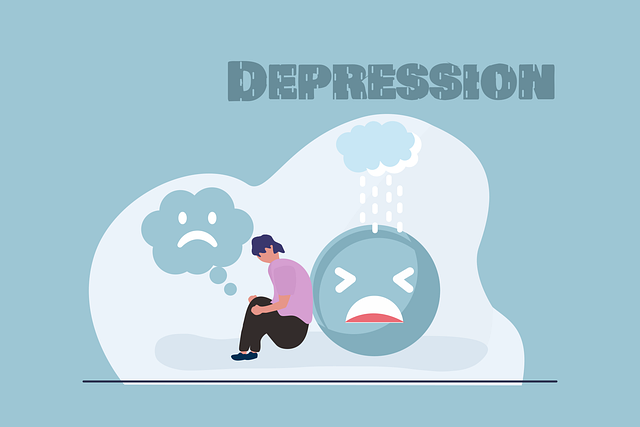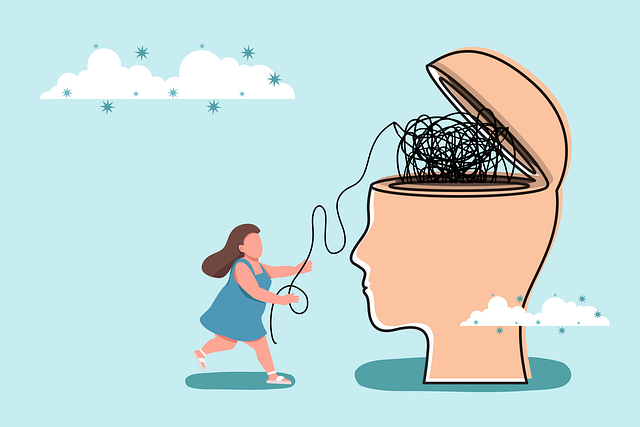Crisis intervention strategies, emphasizing therapy for adults and parenting skills, are essential tools in mental health support. These interventions provide immediate relief and stabilisation, addressing personal trauma and life stressors. Evidence-based techniques like cognitive-behavioral therapy (CBT) challenge negative thought patterns, while family therapy models improve communication. Public awareness campaigns destigmatise mental health issues and empower adults to seek help. For parents, therapy offers structured counseling, risk management planning, and emotional regulation strategies for both adults and children, fostering healthier relationships and promoting long-term psychological resilience.
In times of crisis, effective intervention strategies are vital for guiding individuals and families towards stability. This article provides a comprehensive overview of crisis intervention techniques tailored to adults and parents facing stressful situations. We explore evidence-based therapies designed to help adults manage crises, while also delving into nurturing effective parenting skills to ensure the well-being of children during challenging times. Essential strategies for both home and broader settings equip readers with valuable tools to navigate and resolve crises successfully.
- Understanding Crisis Intervention: A Brief Overview
- Therapy for Adults in Crisis: Techniques and Approaches
- Nurturing Effective Parenting Skills During Times of Stress
- Practical Strategies for Crisis Management at Home and Beyond
Understanding Crisis Intervention: A Brief Overview

Crisis intervention strategies are critical components of mental health support, designed to offer immediate assistance during moments of acute distress or crisis. This approach is not a one-size-fits-all; it’s tailored to meet the unique needs of individuals facing various challenges, be it personal trauma, mental health crises, or significant life stressors. The primary goal is to provide effective short-term relief while stabilising the person and preventing further deterioration.
In the context of therapy for adults and parenting skills, crisis intervention plays a pivotal role in fostering resilience and promoting healthy coping mechanisms. It equips individuals with tools to navigate turbulent situations, enhance self-esteem improvement, and build adaptive strategies. Moreover, crisis interventions can be integrated into broader Mental Health Policy Analysis and Advocacy efforts, raising public awareness through campaigns that destigmatise mental health issues and encourage seeking help. Public Awareness Campaigns Development plays a significant role in ensuring people are equipped with the knowledge to recognise when a crisis is emerging and where to turn for support.
Therapy for Adults in Crisis: Techniques and Approaches

In crisis intervention, therapy for adults plays a pivotal role in helping individuals navigate and overcome acute distress. For adults struggling with personal crises, therapists employ a range of evidence-based techniques tailored to foster resilience and coping abilities. One effective approach is cognitive-behavioral therapy (CBT), which focuses on identifying and challenging negative thought patterns contributing to the crisis. By replacing irrational beliefs with realistic ones, CBT equips adults with improved mood management skills. This form of therapy encourages individuals to develop healthier coping strategies, such as problem-solving, stress reduction techniques, and emotional regulation practices.
Parenting skills are also integral to adult crisis intervention, especially when familial dynamics are at play. Therapists may incorporate family therapy models, helping adults enhance communication within their families and resolve conflicts that could be exacerbating the crisis. Promoting strong parenting skills not only benefits the individual in distress but also positively impacts their children’s well-being. In addition to CBT and family therapy, public awareness campaigns development can play a significant role in fostering an environment where individuals feel supported. By raising awareness about available resources and coping skills development, these campaigns empower adults to seek help during times of crisis, thereby reducing the impact of such events on their lives.
Nurturing Effective Parenting Skills During Times of Stress

During stressful periods, parents may struggle to maintain effective parenting skills. This is where therapy for adults can play a pivotal role in enhancing their ability to navigate challenging situations and foster healthy relationships with their children. Mental wellness journaling exercise guidance can help individuals process their emotions and gain insights into their reactions, thereby improving their overall mental health and allowing them to approach parenting with more patience and clarity.
Crisis intervention guidance emphasizes the importance of risk management planning for mental health professionals as well. By equipping parents with tools to manage stress effectively, therapists contribute to a safer and more supportive family environment. This proactive approach not only benefits the parent-child relationship but also aligns with crisis intervention strategies designed to mitigate potential risks and promote mental wellness in both adults and children.
Practical Strategies for Crisis Management at Home and Beyond

In the face of a crisis, whether at home or in public, practical strategies for management are paramount. For adults seeking to navigate turbulent situations, therapy offers a robust tool for emotional regulation and anxiety relief. Through structured counseling sessions, individuals can develop coping mechanisms tailored to their unique challenges, fostering resilience against future crises. This process encourages self-awareness, enabling better stress management and enhanced decision-making under pressure.
Parenting skills also play a crucial role in crisis intervention, especially when children are involved. Teaching them age-appropriate strategies for emotional regulation helps mitigate the impact of stressful events at home. By employing calm communication techniques and establishing safe spaces, parents can guide their kids through crises, fostering a sense of security and promoting healthy emotional development. This proactive approach extends beyond immediate crisis management, building long-term psychological resilience in both adults and children.
Crisis intervention strategies play a vital role in helping individuals navigate stressful situations, whether it’s through therapy for adults or fostering effective parenting skills. By understanding these techniques and implementing practical approaches at home and beyond, we can effectively manage crises and support those in need. Integrating these strategies into our lives empowers us to respond with resilience, compassion, and adaptability during challenging times.














